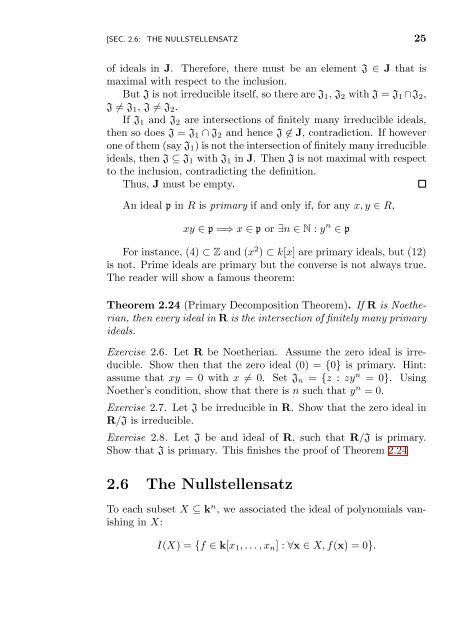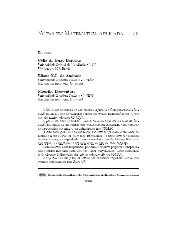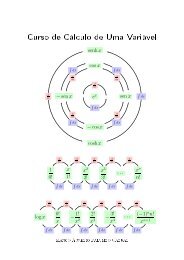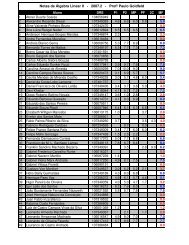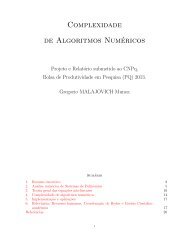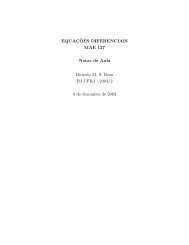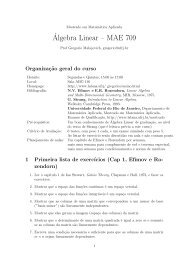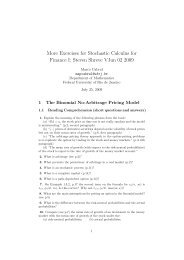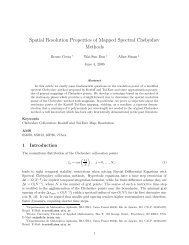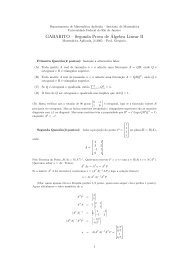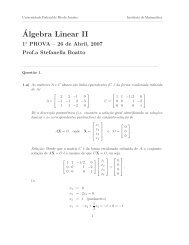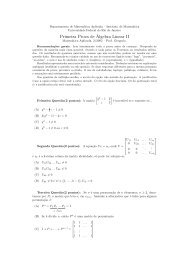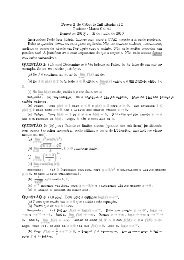Nonlinear Equations - UFRJ
Nonlinear Equations - UFRJ
Nonlinear Equations - UFRJ
Create successful ePaper yourself
Turn your PDF publications into a flip-book with our unique Google optimized e-Paper software.
[SEC. 2.6: THE NULLSTELLENSATZ 25<br />
of ideals in J. Therefore, there must be an element J ∈ J that is<br />
maximal with respect to the inclusion.<br />
But J is not irreducible itself, so there are J 1 , J 2 with J = J 1 ∩J 2 ,<br />
J ≠ J 1 , J ≠ J 2 .<br />
If J 1 and J 2 are intersections of finitely many irreducible ideals,<br />
then so does J = J 1 ∩ J 2 and hence J ∉ J, contradiction. If however<br />
one of them (say J 1 ) is not the intersection of finitely many irreducible<br />
ideals, then J ⊆ J 1 with J 1 in J. Then J is not maximal with respect<br />
to the inclusion, contradicting the definition.<br />
Thus, J must be empty.<br />
An ideal p in R is primary if and only if, for any x, y ∈ R,<br />
xy ∈ p =⇒ x ∈ p or ∃n ∈ N : y n ∈ p<br />
For instance, (4) ⊂ Z and (x 2 ) ⊂ k[x] are primary ideals, but (12)<br />
is not. Prime ideals are primary but the converse is not always true.<br />
The reader will show a famous theorem:<br />
Theorem 2.24 (Primary Decomposition Theorem). If R is Noetherian,<br />
then every ideal in R is the intersection of finitely many primary<br />
ideals.<br />
Exercise 2.6. Let R be Noetherian. Assume the zero ideal is irreducible.<br />
Show then that the zero ideal (0) = {0} is primary. Hint:<br />
assume that xy = 0 with x ≠ 0. Set J n = {z : zy n = 0}. Using<br />
Noether’s condition, show that there is n such that y n = 0.<br />
Exercise 2.7. Let J be irreducible in R. Show that the zero ideal in<br />
R/J is irreducible.<br />
Exercise 2.8. Let J be and ideal of R, such that R/J is primary.<br />
Show that J is primary. This finishes the proof of Theorem 2.24<br />
2.6 The Nullstellensatz<br />
To each subset X ⊆ k n , we associated the ideal of polynomials vanishing<br />
in X:<br />
I(X) = {f ∈ k[x 1 , . . . , x n ] : ∀x ∈ X, f(x) = 0}.


